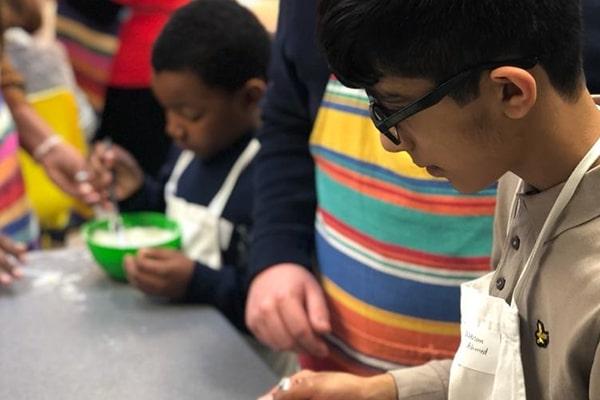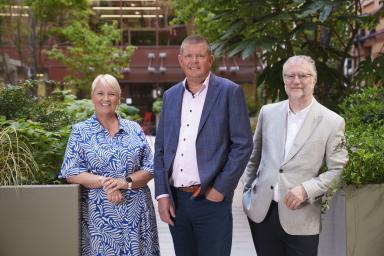Success Story
| Region/Nation | London |
|---|---|
| Programme | Coronavirus Business Interruption Loan Scheme (CBILS) |
| Partner |
When COVID-19 first took hold, the Royal Society for Blind Children was quick to realise its income was soon to be severely affected. With many of its fundraising events and payments from regular donors suspended, the charity saw a need to apply for financial support via the Coronavirus Business Interruption Loan Scheme (CBILS).
Read what it had to say in this CBILS case study.
British Business Bank: Can you tell us what your organisation does?
Dr Tom Pey, CEO of the Royal Society for Blind Children: The Royal Society for Blind Children educates and supports blind and partially sighted children and young people and their families. Our founder Thomas Lucas set up a school to teach blind children to read in 1838. Today, nearly 200 years later, our team works across a range of services including family support, further education, social inclusion and independence skills.

The coronavirus has affected a huge number of businesses across the UK. What problems were you facing as a result of the outbreak and what made you apply for CBILS support?
When we first heard about the situation with COVID-19, we suspected immediately that we were going to have a drop off in unrestricted income of several hundred thousand pounds. This was due to the London Marathon being pushed back to October, delays with legacy notifications and payments from estates, community and fundraising activities being suspended, and fewer face-to-face sign-ups for giving regular donations.
How long did the application process take? Did you need any support?
The process from application to disbursal was 28 days. We needed some support with signing documents electronically, but once this was resolved and the documents were signed, the funds were with us in a very short period of time.
This turnaround time is just simply amazing. It demonstrates that the people who were underwriting the loan understood the scheme’s criteria, the charity sector, and precisely how charity liquidity works.
The CBILS loan means we can be more confident about our liquidity in the short term. Rather than have to cut back, we’re able to expand our reach, reduce the cost of delivering services, and increase customer engagement. - Dr Tom Pey CEO of Royal Society for Blind Children
What advice would you give to other businesses that are applying for a CBILS loan?
If you’re confident that the drop in income is temporary and it’s going to bounce back fairly quickly, then clearly you’re financing a gap and that’s OK. However, you need to be sure that you can predict your future cashflows with confidence so that you don’t default on the terms of the loan.
Many charities can be more certain about their future cashflows because they have a level of predictable income through regular donations. That said, they need to be careful that they don’t use restricted income to repay debt. Such debt can only be paid from free reserves.
How has the CBILS loan helped your organisation to weather the outbreak? And what might have happened if you hadn’t received it?
The CBILS loan means we can be more confident about our liquidity in the short term. It gives us a clear line of sight for 24 months, so rather than cutting back, we expanded our reach, reduced the cost of delivering services, and increased customer engagement.
Without the funding, given our short-term liquidity problems we would’ve had to downsize the services the charity provides.


